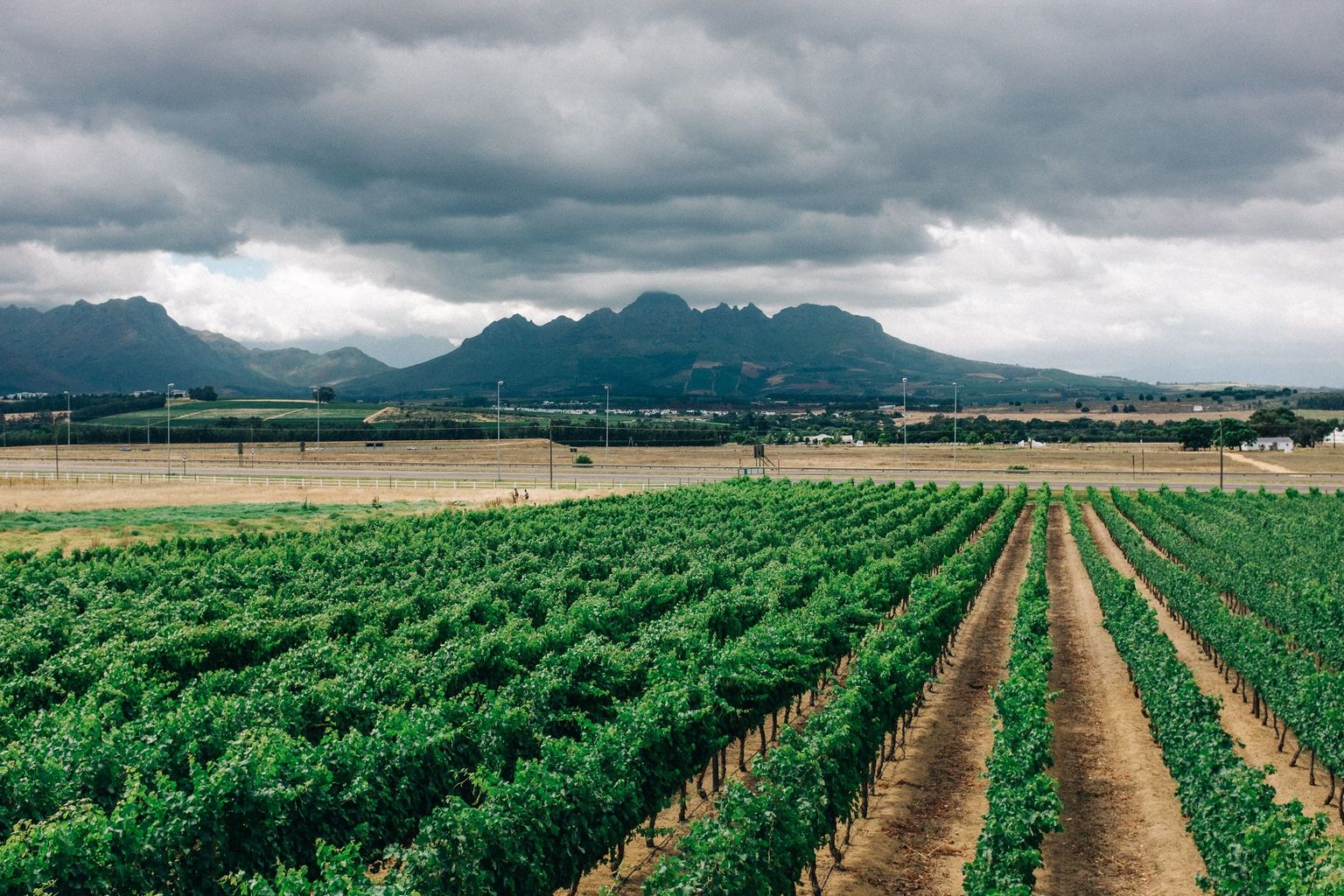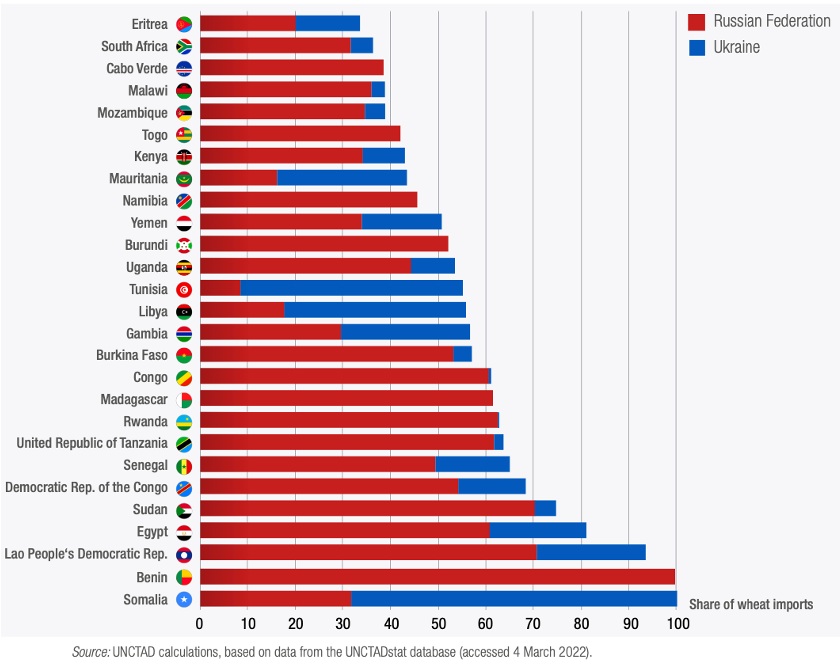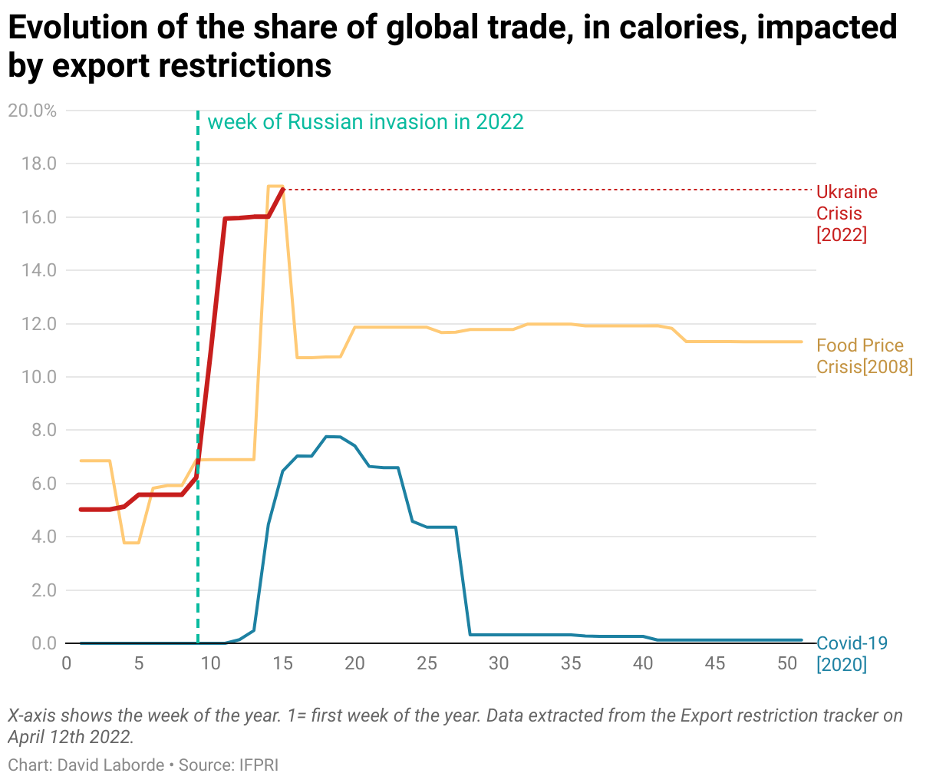- Agri-Food
The Challenges of African Food Sovereignty
- Maxwell Rubin

Climate change, the pandemic, Russia’s invasion of Ukraine, and growing levels of debt have converged for a worst-case scenario ‘perfect storm’ for Africa’s food supply and agriculture system. This data story will explore some of the current problems, the reasons behind them, and the solutions we need to overcome them.
For the nearly 282 million people undernourished in Africa, and the additional 46 million people plunged into risk of hunger and undernourishment because of the COVID-19 pandemic, the war in Ukraine has had devastating impacts. Russia’s invasion of Ukraine threatens to further destabilise Africa’s food supply and agriculture system, shedding light on the importance of action towards a more localised, independent African food system.
282 Million People
Undernourished in Africa
46 Million People
At risk of hunger or undernourishment from the COVID-19 Pandemic
Food sovereignty is not a new discussion. In 2014, at the Africa Union Summit in Malabo, Equatorial Guinea, heads of state adopted a goal to commit 10% of their national budgets to agriculture. However, high levels of debt owed within the continent and to multilateral institutions beyond the continent have hampered progress on this front. Accordingly, achieving food sovereignty on the continent will require the support and collaboration of the international community, financial institutions, agri-food experts, the private sector, and civil society.
Russia’s invasion of Ukraine has drastically altered fertiliser and food supply. Russia and Ukraine exports of 28% of the worlds fertilisers made from nitrogen, phosphorous, and potassium. Russia and Belarus supply 40% of the world’s potash exports, the latter of which has halted exports on certain fertilisers. For ammonium nitrate, Russia alone exports 48% of the world’s supply. As for food supplies, Russia and Ukraine are among the top 10 wheat producers, and among the five largest wheat exporters in the world. Together, they represent a combined 27% of the global trade in wheat and 12% of total calories traded in the world. Without fertilisers, growing seasons are made more difficult and without wheat exports, countries are unable to supply the difference in supply declines.
27% Russia & Ukraine Combined Share of Global Wheat Trade
12% Russia & Ukraine Combined Share of Global Calories Traded
The war has left current supplies of wheat at risk of never reaching their destination, and future supplies are at risk of never being grown if the war persists through planting season (September to November). In Ukraine alone, nearly 20 million tons of wheat are stuck, waiting to get out of the country. For perspective, from July 2020 – June 2021, Ukraine exported 16.6 million tonnes of wheat.

For many nations, relying on wheat and fertilizers from very few suppliers has put prices at the mercy of Putin, and European sanctions.
In Sudan and Lebanon, the price of bread has nearly doubled because of rising wheat prices. For Kenya and Egypt, the cost of importing wheat has increased by 33%, with Cairo, the world’s largest wheat importer (over 70%), now requesting IMF and regional assistance to avoid a national economic crisis with regional implications.
While many African countries are large rice consumers instead of wheat, the high levels of reliance on the two crops highlights the importance of seed diversity and avoiding monocultures.
Prices for fertiliser in Africa have tripled compared to 2021 levels at a time when Africa’s cereal yields are forecasted to be 20-50% lower than 2021 levels. In just the first quarter of 2022, the World Bank’s Fertilizer Price Index rose nearly 10% to its highest levels of all-time.
Export restrictions have also increased food prices, creating far more obstacles to global food trade than the pandemic. For example, recent insurance bans on ships carrying Russian oil may also result in disruptions for shipments of grain. Greater solidarity with regards to trade among African countries and with Europe, such as avoiding export bans, must be prioritised to achieve food sovereignty.

While disruptions in agri-food production have local impacts, access to fundamentals such as food and energy often causes national security implications. Accordingly, food sovereignty is a matter of national security. Without the creation and development of local agri-food chains, local food supply is out of Africa’s control and in the hands of foreign actors. By supporting local agri-food chains, we can achieve greater economic integration, develop trade corridors, and move towards achieving the objections of the Africa Union Year of Nutrition.